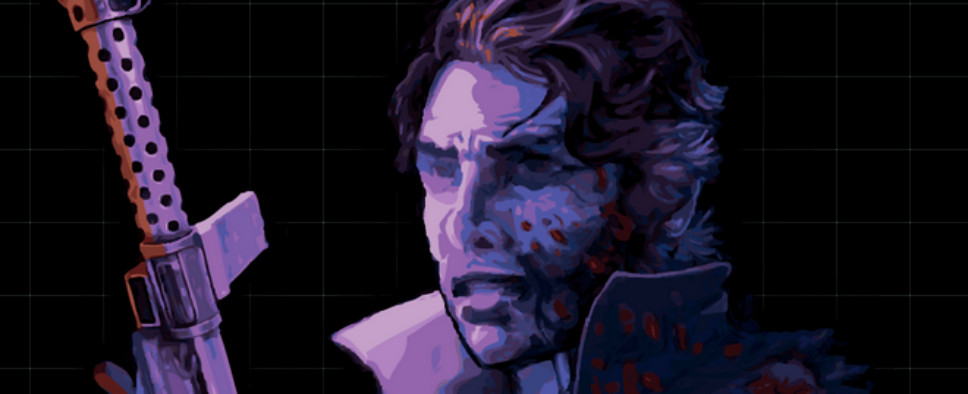Copper Dreams Update #14
-
Category: News ArchiveHits: 813

The latest Kickstarter update for Whalenought Studios' cyberpunk RPG, Copper Dreams, takes a long and detailed look at the game's peculiar dialogue system. There's a lot there, so here are just the opening paragraphs to give you a general idea of what's going on:
Roleplaying Goals
Our goal was to make dialogue another tool in the player’s belt. Dialogue doesn't take away player agency, and is instead something that's either strictly for the player to get information from NPCs or playful banter — usually somewhere in-between. For Copper Dreams we came up with a few guidelines for dialogue:More P&P Feels
- Never author events in dialogue that the player could use gameplay to actually play through. Limiting the large amount of tools we've given the player for gameplay to push some story/dialogue/cinematic would be insulting to the player and systems, and ultimately make a bad DM experience. Players need to be able to respond to dialogue or cinematic situations with ALL their tools and gameplay mechanics normally available.
- The player isn't important or destined for greatness, conversations need to reflect that. It’s a dungeon crawl where you play as cyborg monsters, you're not sitting down for tea, so NPCs shouldn't be to open to a stranger like yourself.
- Allow player agency by making dialogue events predictable by making the tools at your disposal during conversation very consistent in their application. If you try to bribe one person, you can try to bribe them all, whenever you want during a dialogue.
Tags were initially a difficult choice for us, as it’s very easy to fall into the trap of dragging the player by the ear to show or tell them something just the way you want to through some dialogue event. Any DM knows the experience of setting up a great event or character encounter for a story to have a player evade or change it through clever or unexpected means. That’s awesome though, allowing player agency for creative problem solving is the crux for most [good] tabletop roleplaying we know. If we’re under the assumption that games should be a challenge, which we are, selecting through a handful of dialogue options for choice/consequence isn’t a challenge, it’s just a storybook with a no-lose scenario.
After assessing what we then wanted, we couldn’t use the typical CYOA events usually done in roleplaying games. CYOA style text options in a gameplay focused RPG is the equivalent of quicktime events to an action game. There's often a contradiction in design for RPGs where they give players an immense amount of tools and ways of completing tasks, but then in a conversation or cinematic players are often shoehorned into a situation where they can only access a fraction of those tools in story contextual ways. No amount of choice and consequence can make up for the fact that the DM took away the rules and tools you were relying on up to that point to be cinematic or story heavy for their own agenda, taking away from your experience.
We had to think about how we use it and make it fun in actual p&p gaming. Rolling for risky (permanent) social disposition changes for NPCs is a big part of that, as well as the focus of using them as a tool for gameplay and not story-dumps. The conversation flow of an NPC saying something and the player asking about keyword highlights is a comfortable flow and encourages the idea that you’re purposefully asking these questions, that these NPCs are a tool at your disposal instead of there to tell you about your story.
Tags and Emergent Gameplay
Tags became an obvious starting point for what we wanted to do. It gives the player total agency and voice of their characters by not having the game authoring what they say and how they say it.
More importantly, this coincides with our other goal to not streamline gameplay through cutscenes or dialogue options, and instead rely on emergent gameplay. Systemic gameplay can sustain itself with no matter what is thrown at it, which was already the goal, but now is certainly an emphasis as we aren’t controlling the content through dialogue.
For instance we have a lot of focus on sneaking mechanics during gameplay to avoid setting off alarms or being seen (or getting un-seen). It would be pretty dodgy, as your DM, if we say or ask to roll during a cinematic or dialogue to avoid being caught or set off alarms after stealing something or killing a target behind enemy lines. When there are burglary, searching, or just gameplay for NPCs existing with some sort of AI, we can’t have these narrative take-overs for the sake of story navigation, that’s lazy. We want to let players roll for these actions anyway they can think of tactically with normal gameplay.
So that’s been a lot of extra work for us to create systems that can ultimately be abused by the player, as we definitely have events and interesting things happening in the city, but for the sake of roleplaying we’re left with allowing the player to disrupt and tackle these events anyway they want to. To that end there is choice and consequence made by the player, not the author.

